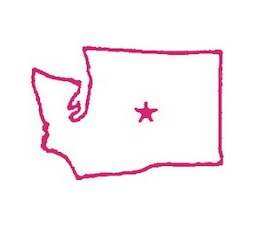Auto Insurance
In today's world, anyone who drives a car must have insurance coverage. There are a number of options available and at CWI we'd love the opportunity to answer any of your questions. Below is a quick description of some of the basic terms:
Liability Coverage (Liability)
Bodily Injury Liability - Covers other peoples bodily injuries or death for which you are responsible. It also provides for a legal defense if another party in the accident files a lawsuit against you. Claims for bodily injury may be for such things as medical bills, loss of income or pain and suffering. In the event of a serious accident, you want enough insurance to cover a judgment against you in a lawsuit, without jeopardizing your personal assets. Bodily injury liability covers injury to people, not your vehicle. Therefore, it is a good idea (and usually a company requirement) to have the same level of coverage for all of your cars. Bodily Injury Liability does NOT cover you or other people on your policy. Coverage is limited to the terms and conditions contained in the policy. It is mandatory in most states.
Property Damage Liability - Covers you if your car damages someone else's property. Usually it is their car, but it could be a fence, a house or any other property damaged in an accident. It also provides you with legal defense if another party files a lawsuit against you. It is a good idea to purchase enough of this insurance to cover the amount of damage your car might do to another vehicle or object. Coverage is limited to the terms and conditions contained in the policy.
Physical Damage Coverage (Comp & Collision)
Comprehensive Coverage (Comp) - Covers your vehicle, and other vehicles (in limited scenarios) you may be driving for losses resulting from incidents other than collision. For example, comprehensive insurance covers damage to your car if it is stolen; or damaged by flood, fire, or animals. It pays to fix your vehicle less the deductible you choose. To keep your premiums low, select as high a deductible as you feel comfortable paying out of pocket. Coverage is limited to the terms and conditions contained in the policy. This is not required by a state, but if you have a loan or a lease then the lien holder will require it.
Collision Coverage (Collision) - Covers damage to your car when your car hits, or is hit by, another vehicle, or other object. Pays to fix your vehicle less the deductible you choose. To keep your premiums low, select as large a deductible as you feel comfortable paying out of pocket. For older cars, consider dropping this coverage, since coverage is normally limited to the cash value of your car. Coverage is limited to the terms and conditions contained in the policy. This is not required by a state, but if you have a loan or a lease then the lien holder will require it.
Uninsured and Underinsured Motorist Coverage
As the name implies, this coverage kicks in when you're involved in an accident with someone who has little or no insurance. Just like primary insurance, your coverage can vary depending on the options you select when setting up your policy. At a minimum, you should have Uninsured Motorist/Bodily Injury coverage. This covers you, the insured members of your household and your passengers for bodily/personal injuries, damages, or death caused by an at-fault uninsured or hit-and-run driver. If you are involved in an accident where the other driver is at fault but has no insurance, your policy will cover your medical expenses, up to the limit on your policy.
Remember, there are many options to consider when choosing auto coverage and the friendly staff at CWI will be happy to help you select the coverage that's right for you.
Personal Injury Protection Coverage (PIP)
Personal Injury Protection - Covers within the specified limits, the medical, hospital and funeral expenses of the insured, others in his vehicles and pedestrians struck by him. The basic coverage for the insured's own injuries on a first-party basis, without regard to fault. It is only available in certain states. Depending on the state, the covered parties below and the amount of protection may vary.
There are many different types of automobile insurance coverage beyond what we've covered here and we'll be glad to answer all your questions and help you find the right policy for your needs.

Life Insurance
If insurance terms leave you dazed and confused, here's some helpful information about the four major types of life insurance policies. Keep in mind that definitions may vary slightly from company to company and from state to state. The capable staff here at CWI is always available to answer your questions:
Term Insurance - The simplest form of insurance. You purchase coverage for a specific price for a specified period. If you die during that time, your beneficiary receives the value of the policy. There is no investment component.
Whole Life - Similar to term, but you purchase the policy to cover your "whole life" not just a set period. Premiums remain level throughout the life of the policy, and the company invests at least a portion of your premiums. Some firms share investment proceeds with policyholders in the form of a dividend. Many companies will offer "a relatively low guaranteed rate of return," but in reality pay at a rate in excess of the guarantee.
Universal Life - You decide how much you want to put in over and above a minimum premium. The company chooses the investment vehicle, which is generally restricted to bonds and mortgages. The investment and the returns go into a cash-value account, which you can use against premiums or allow to build. With some policies, sometimes called Type I or Type A, the cash account goes toward the face value of the policy on the death of the policyholder. With a second variety, sometimes called Type II or Type B, the beneficiary receives the face value of the policy plus all or most of the cash account. While Type II is meant to provide a partial hedge against inflation, it demands higher premiums as you get older than Type I. A variation of a universal policy, often called universal variable life, allows policyholders to choose investment vehicles.
Variable life - With a variable policy, there is usually a wider selection of investment products, including stock funds. As with a universal policy, returns on investments can offset the cost of premiums or build in the account. And depending on the type of policy, the beneficiaries will either receive the face value of the policy or the face value plus all or part of the cash account.

Health Insurance
Understanding health insurance plans can be a daunting task. There are many options to choose from and Central Washington insurance will be glad to meet with you to provide the best healthcare coverage to fit your needs and your budget. If you're a business owner, we can also help you provide health benefits for you and your employees employees. Health insurance can be a valuable component in employee satisfaction and staff rentention by providing a well-rounded package of beneifts.

Homeowners Insurance
Everyone who owns a home needs homeowners insurance. This essential coverage provides financial protection against disasters. A standard policy insures the home itself, other structures on the property such as a garage or a shop, and the things you keep in it.
Homeowners insurance is a package policy. This means that it covers both damage to your property and your liability or legal responsibility for any injuries and property damage you or members of your family cause to other people. This can even include damage caused by household pets.
Damage caused by most disasters is covered but there are exceptions. The most significant are damage caused by floods, earthquakes and poor maintenance. You must buy two separate policies for flood and earthquake coverage. Maintenance-related problems are the homeowners' responsibility.
Your homeowners insurance policy can be one of the most important purchases you ever make. The friendly staff at Central Washington Insurance will work hard to make certain you have the coverage you need for financial protection and peace of mind.

Renters Insurance
If you rent a house or apartment and think that your landlord is financially responsible when there is a fire, theft or other catastrophe—think again. Your landlord may have insurance to protect the building you are living in, but your landlord’s policy won’t replace your personal possessions or pay for your living expenses while the building is being repaired. The only way to protect yourself financially against disasters is to buy a renters insurance policy. Renters insurance, sometimes referred to as tenants insurance, includes three basic types of protection:
Personal Possessions - Standard renters insurance protects your personal belongings against damage from fire, smoke, lightning, vandalism, theft, explosion, windstorm, water and other disasters listed in the policy. Floods and earthquakes are not covered. Supplemental insurance is available to cover these disasters—see the Frequently Asked Questions section of the brochure for more information.
To decide how much insurance to buy, you need to know the value of all your personal possessions—including furniture, clothing, electronics, appliances, kitchen utensils and even towels and bedding. In other words, if your home were to burn, you should have enough insurance to replace all of your possessions.
The easiest way to figure out how much insurance coverage to buy is to create a home inventory (a detailed list of all of your personal possessions, with their estimated value). To help make this task easier, the Insurance Information Institute offers free Web-based software, which you can find at www.knowyourstuff.org. An up-to-date home inventory will also make filing an insurance claim faster and easier.
Liability - Standard renters insurance policies provide liability protection against lawsuits for bodily injury or property damage that you or your family members cause to other people. It also pays for damage your pets cause. So, for example, if your son, daughter or dog accidentally ruins your neighbor’s expensive rug, you’ll be covered. However, if your children or pets destroy your own rug, you will not be covered.
The liability portion of a renters policy pays for both the cost of defending you in court and for court awards, up to the limit of the policy. Liability limits generally start at about $100,000. Some experts recommend that you buy at least $300,000 worth of protection. You can also buy an Umbrella or Excess Liability policy, which provides higher limits and broader coverage. Generally, umbrella policies cost between $200 to $350 a year for an extra $1 million of liability protection.
Your policy also provides No-fault Medical coverage. So, if a friend or neighbor is injured in your home, you can submit their medical bills directly to your insurance company. You can generally get $1,000 to $5,000 worth of this coverage. It doesn’t, however, pay the medical bills for your own family or your pet.
Additional Living Expenses - Many people don’t know that Additional Living Expenses coverage, also known as ALE, is included in a renters insurance policy. If your home is destroyed by a disaster that your policy covers and you need to live elsewhere, renters insurance covers your additional living expenses. Policies will generally reimburse you the difference between your additional living expenses and your normal living expenses. ALE covers hotel bills, temporary rentals, restaurant meals and other expenses you have incurred while your home is being rebuilt.

Business Insurance
Most businesses need to purchase at least the following four types of insurance:
Property Insurance - Property insurance compensates you if the property you use in your business is lost or damaged as the result of various types of common “perils” such as fire or theft. Property insurance covers not just a building or structure but also what insurers call “personal property,” meaning office furnishings, inventory, raw materials, machinery, computers and other items vital to your business operations. Property insurance can do more than protect your physical assets. It may also provide operating funds during a period when you are trying to get the business back on track after a catastrophic loss. Depending on the type of policy you have, property insurance may include coverage for equipment breakdown, removal of debris after a fire or other destructive event, some types of water damage and other losses.
Liability Insurance - Any enterprise can be sued. People may claim that your business caused them harm as the result of, for example, a defective product, an error in a service or disregard for another person’s property. Or someone may allege that you created a hazardous environment. Your liability insurance pays damages for which you are found liable, up to the policy limits, as well as attorneys' fees and other legal defense expenses. It also pays the medical bills of any people injured by your business.
Business Vehicle Insurance - If you use your own car for business purposes, discuss this with your agent. Many personal auto insurance policies exclude coverage if the vehicle involved in an accident is used mainly for business. A business auto policy provides coverage for autos owned by a business. The insurance pays any costs to third parties resulting from bodily injury or property damage for which your business is legally liable, up to the policy limits. Depending on what kind of coverage you buy, the insurance may pay to repair or replace your vehicle because of damage resulting from accidents, theft, flooding and other events.
Workers Compensation Insurance - In all states but Texas an employer must have workers compensation insurance when there are more than a certain number of employees, varying from three to five, depending on the state. Workers comp insurance, as this coverage is generally called, pays for medical care and replaces a portion of lost wages for an employee who is injured in the course of employment, regardless of who was at fault for the injury. When a worker dies as a result of injuries sustained while working, the insurance provides compensation to the employee’s family.
Got a home-based business?
Insurance for a Home-Based or Very Small Business - An extremely small business, such as one operated by one or two people out of a home, may not need workers compensation insurance. But it often needs more property and liability insurance than is provided in a typical homeowners policy.

Farm & Ranch Insurance
You can’t predict weather, stolen machinery or cattle being struck by lightning. Expecting the unexpected is simply a way of life for farmers. That's why you need an insurance policy that’s a sure thing.
Central Washington Insurance offers dependable policy options that work as hard as you do. Based on the package policy concept, our plans let you build coverage to fit the special insurance needs of your agricultural-based business and there are multiple options depending on the type of farm or ranch you own. The Central Washington Insurance team has been protecting our agricultural community for decades and we'll be happy to help you get the coverage you need.

Bond Services for Small Business
From time to time a small business, especially those performing contracting services will be asked to bond his work in advance. In some states certain types of contractors are required to be bonded. What is a bond, how do you get one, and what does it do?
Simply put a bond (sometimes referred to as a surety bond) is a third party obligation promising to pay if a vendor does not fulfill its valid obligations under a contract. A bond is a financial guarantee that you will honor a business contract. Frequently a customer will require that your company be bonded.
Performance Bond - A performance bond is a guarantee that you will perform work in accordance with the terms of a contract.
Bid Bond - A bid bond is a guarantee you will perform work if the bid is won by you.
Indemnity Bond - An indemnity bond promises to reimburse loss incurred if you fail to perform or if you fail to pay other vendors in the performance of the contact.
License Bond - A license bond is required by some states for certain businesses. In some cases you pay the state directly rather than obtaining a bond.
Payment Bond - A payment bond promises you will pay all subcontractors and material providers utilized in the performance of a contract.
A bond is NOT an insurance policy. This is important to remember. A bond provides assurance that the contracted work will be satisfactorily completed only. For example, your bond will not pay for property damage or personal injury resulting from your work. For this you need conventional insurance coverage. We'll be happy to help you determine the right bond program for your small business.

Umbrella Liability Coverage
Umbrella liability insurance is so named because it acts like an umbrella, sitting on top of your auto and homeowners liability policies to provide extra protection. (Even if you don't own a home, your still need renters insurance to cover both your liability and your personal property). Here are some examples of situations where umbrella coverage often comes into play:
An auto accident in which you're sued under your auto insurance policy.
Your neighbor slips and falls on your property, and you're sued under your homeowners insurance.
A natural disaster in which another person's property is damaged by, say, a tree on your property crashing down on their vehicle or home. This usually falls into the, "I thought that was covered by my homeowners policy" category.
Your auto and homeowners policies have at least some liability insurance that would be used to settle legal claims. But what if a settlement (or judgment, if it goes to court) is $800,000 and you only have $300,000 of liability insurance? The insurer would pay its $300,000, but where are you going to get the other $500,000?
Central Washington Insurance can help you put together umbrella liability coverage that can provide an extra level of assurance that your needs are being taken care of.

